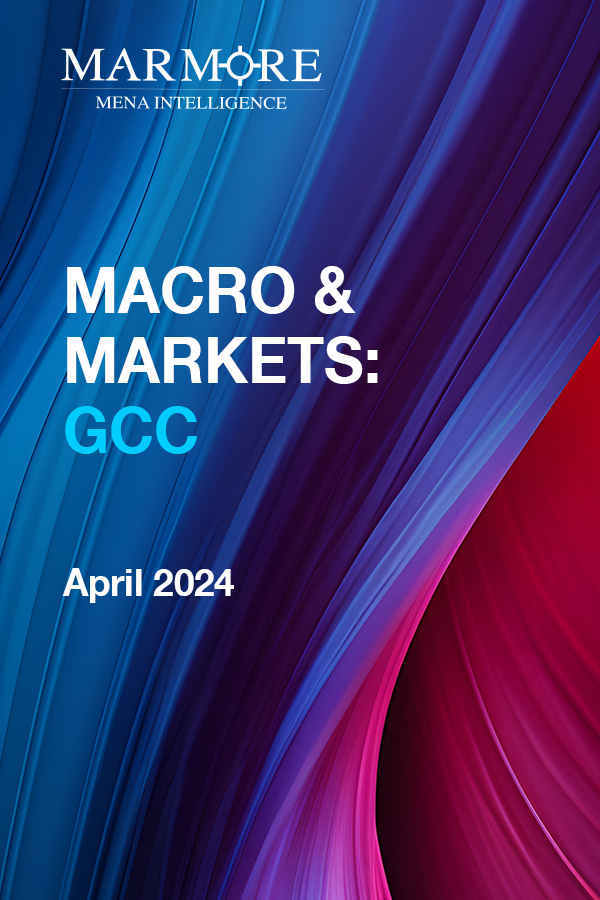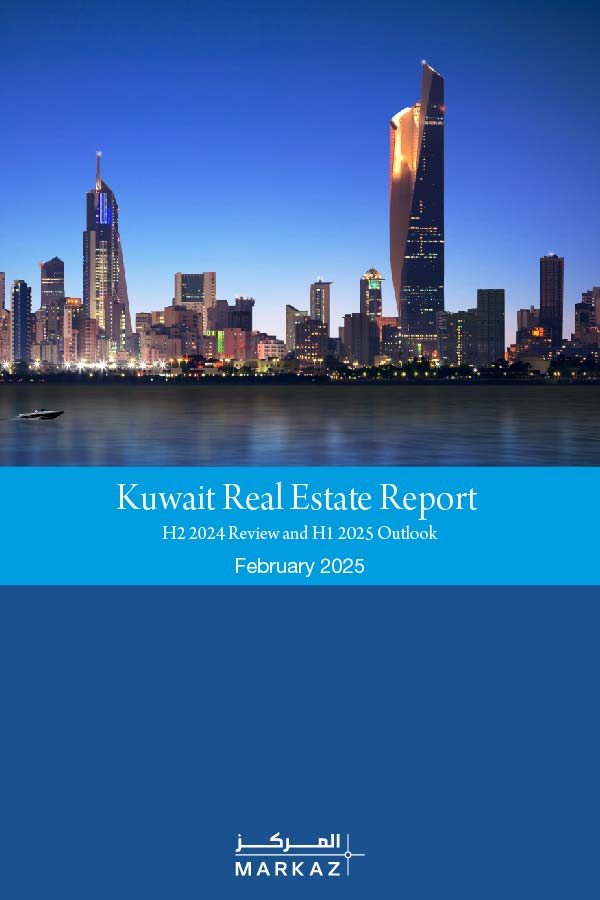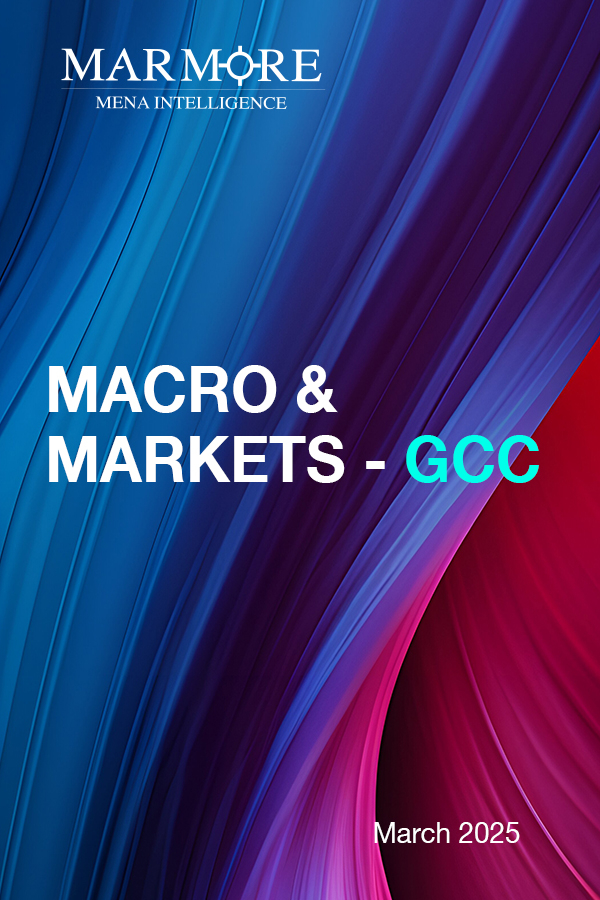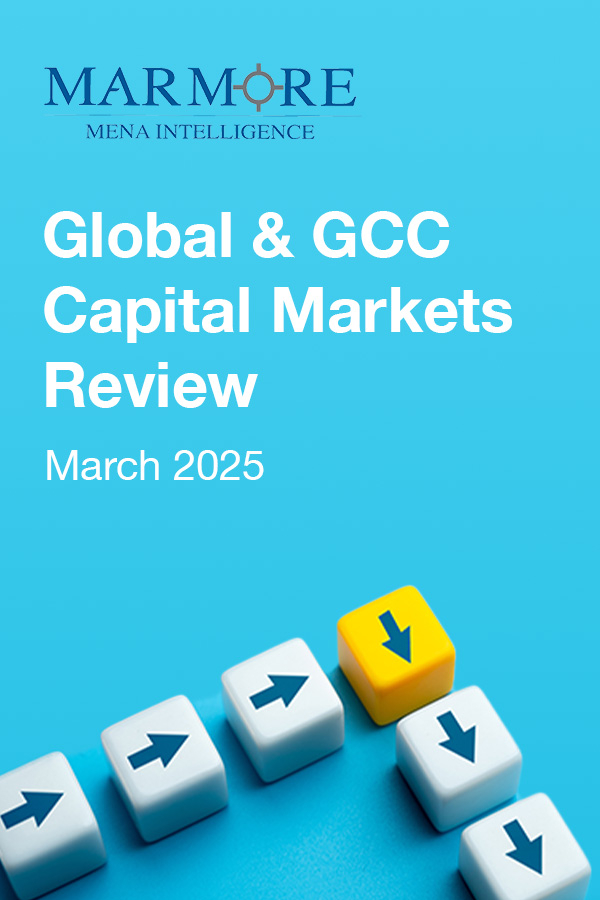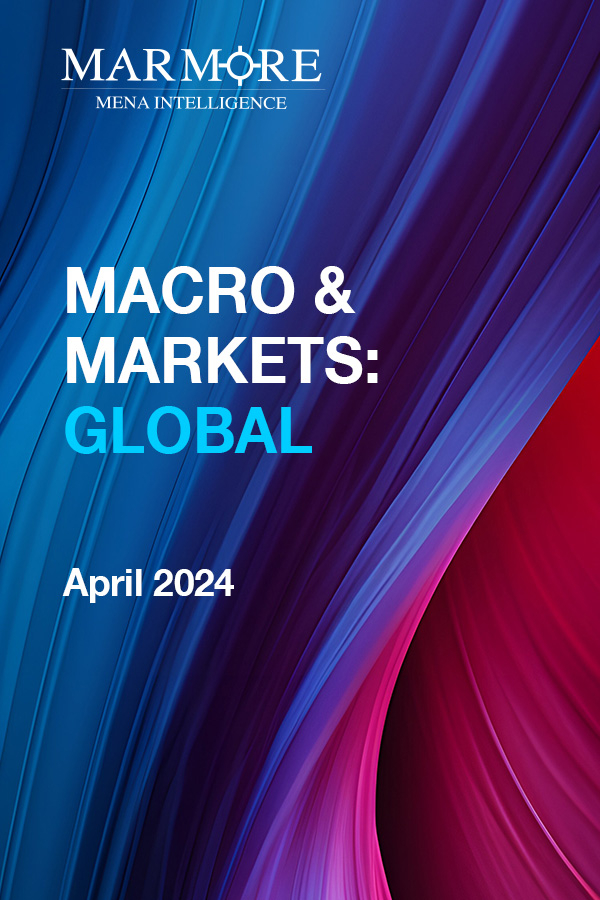Executive Summary
GCC markets mildly declined in March 2025, in line with global markets, due to uncertainty around Trump’s trade policies. Kuwait’s stock market outperformed other regional markets in Q1 2025 with a 9.7% gain, contrasting with losses in all other GCC markets. GCC countries were relatively spared in Trump’s Liberation Day tariff announcement, facing only the baseline 10% tariff. Kuwait equity markets’ strong performance can be attributed to relatively attractive valuations and a series of implemented reforms that include the recently enacted Debt law. The objectives of this law are to diversify funding sources, increase financial flexibility for infrastructure investments, and develop local debt markets. GCC banks represent a significant portion of the GCC stock markets by market capitalization, making their performance an important indicator to monitor. Banks in Saudi Arabia and UAE have largely outperformed other regional banks across most KPIs, with metrics like cost to income exhibiting a wider disparity between banks. Net Interest Margins (NIM) of GCC banks remain strong but could witness some compression after FED cuts their policy rates. Oil markets must contend with a new layer of uncertainty in the form of Trump’s sanctions, which follows a unique strategy of imposing tariffs on the purchaser (i.e. China and India) rather than producers (i.e. Russia, Iran, and Venezuela). Although there are ways to circumvent these tariffs, the move appears to be positive for GCC oil exporters.
